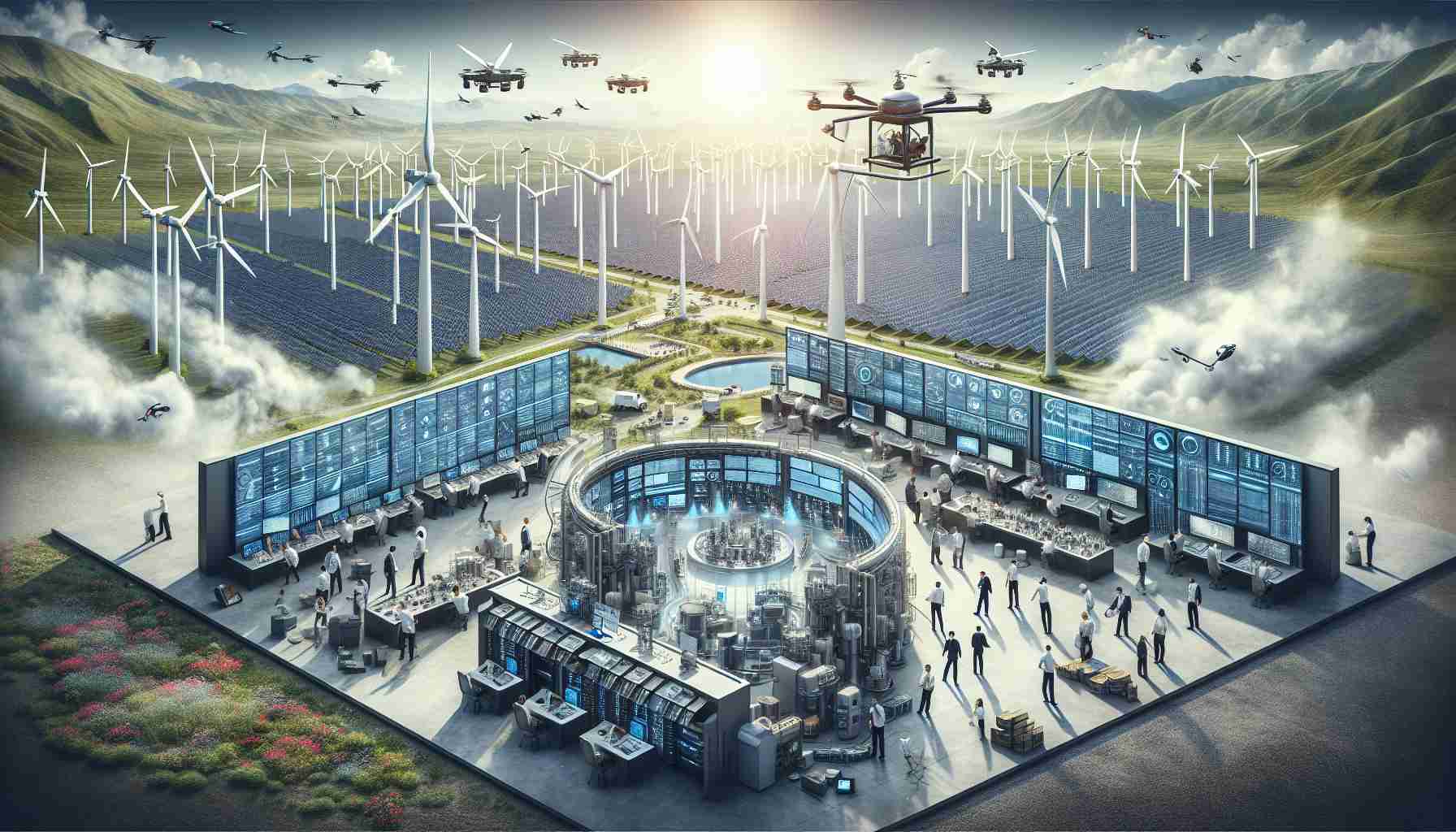Tech Innovators Embrace Nuclear Energy
In a groundbreaking move, tech titan Google recently unveiled a pioneering agreement to purchase energy from mini nuclear reactors, a cutting-edge technology set to be fully operational by the 2030s. Partnering with Kairos Power, Google aims to have the initial reactor online by 2030, adding more reactors by 2035 to meet the soaring energy demands driven by AI advancements.
Industry Giants Transition to Nuclear Power
Following in the footsteps of Google, Amazon and Microsoft also set sights on nuclear energy solutions. Bill Gates revealed plans to power data centers with nuclear energy, while Amazon sealed deals for mini reactors to fuel their operations sustainably. Microsoft’s forward-looking strategy includes reviving the Three Mile Island plant, slated to supply energy for the next two decades.
Advancing Nuclear Energy Technologies
Beyond Google’s commitments, Jeff Bezos-led Amazon forged agreements for nuclear energy projects to ensure a clean energy future. From developing mini reactors in Washington to collaborating on nuclear initiatives in Virginia, Amazon’s focus on nuclear power underscores a strategic shift towards sustainable energy solutions.
The Nuclear Energy Drive
The tech giants’ surge towards nuclear energy underscores their commitment to decarbonize operations swiftly. By leveraging nuclear power’s emission-free characteristics, the firms aim to achieve 24/7 clean energy supply, complementing renewable sources like solar and wind power for a seamless energy transition. Embracing mini reactors for their simplified designs and enhanced safety features, tech companies are poised to revolutionize clean energy production and secure sustainable energy sources for the future.
Optimizing Clean Energy Production for Tech Giants
In the realm of technological innovation and sustainability, the embrace of clean energy solutions by tech giants continues to evolve rapidly. While the focus on nuclear energy is gaining momentum, there are several key questions and considerations that play a crucial role in the ongoing revolution of clean energy production for tech giants.
What are the Most Important Questions in Revolutionizing Clean Energy Production for Tech Giants?
1. How can the scalability of nuclear energy solutions be maximized to meet the increasing energy demands of tech companies effectively?
2. What level of public acceptance and regulatory frameworks are necessary to support the widespread adoption of nuclear power within the tech industry?
3. How do tech giants address concerns regarding long-term nuclear waste management and environmental impact in their pursuit of clean energy goals?
Key Challenges and Controversies Associated with Clean Energy Revolution in Tech Industry
One of the primary challenges associated with revolutionizing clean energy production for tech giants lies in addressing the perceptions and misconceptions surrounding nuclear energy. Despite its emission-free attributes, nuclear power faces public apprehension due to historical accidents and concerns about safety precautions. Finding a balance between innovation, safety, and public acceptance remains a significant hurdle in the industry’s transition to nuclear energy solutions.
Advantages and Disadvantages of Embracing Nuclear Energy for Tech Giants
Advantages:
– Nuclear power offers a consistent and reliable energy supply, essential for supporting the continuous operations of data centers and tech infrastructures.
– Compared to renewable sources like solar and wind power, nuclear energy provides a high energy density, enabling tech giants to meet their substantial energy needs efficiently.
– The development of mini reactors presents a compact and scalable solution for tech companies, allowing for localized energy production and reduced transmission losses.
Disadvantages:
– The high upfront costs associated with nuclear energy projects may pose financial challenges for tech giants, especially in the initial stages of implementation.
– Regulatory hurdles and licensing requirements can prolong the deployment timelines of nuclear reactors, affecting the speed of transition to clean energy.
– The long-term management of nuclear waste remains a significant concern, requiring sophisticated strategies for safe disposal and storage.
For further insights on the evolution of clean energy solutions in the tech industry, you can explore articles and resources on Energy Department’s website. This authoritative source provides in-depth information on various clean energy technologies and initiatives driving the transition towards a sustainable energy future.
